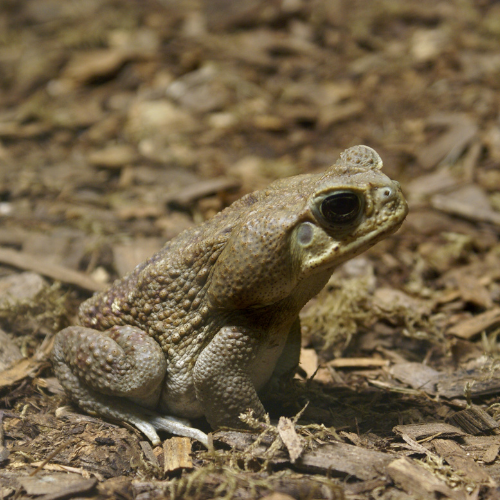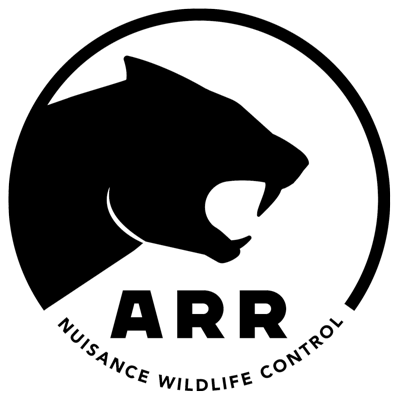In the lush and vibrant landscapes of Central and Southwest Florida, we often find ourselves facing a unique challenge: managing the toad populations, especially the invasive Cane toad. These amphibians, while a natural part of our ecosystem, can become a significant nuisance and pose serious risks to both the environment and our communities.
When we talk about toads in our region, the most notable is the Cane. Originating from outside our ecosystem, this invasive species has made a substantial impact due to its size and the toxins it carries. Unlike the smaller, native Southern, the Cane's presence is more than just a minor annoyance. It presents a range of challenges that require careful and professional attention.
The primary concern with these amphibians is their toxicity. The Cane toad secretes a toxin that poses a serious threat, especially to pets. This becomes a major worry for pet owners, as their curious animals can become ill or worse after an unfortunate encounter with these animals. It's not just about the immediate danger; the lingering fear of what might happen if pets or even small children come into contact with them adds a layer of anxiety to daily life.
Moreover, these toads don't just pose a threat to our pets; they disrupt the delicate balance of our local ecosystems. They compete with native species, often overpowering them due to their larger size and voracious appetites. This competition can lead to a decline in native amphibian populations and other small creatures, which in turn affects the entire food chain. Our gardens, yards, and local parks can all feel the impact of this imbalance.
Residents might feel tempted to tackle this issue on their own, but DIY methods are often ineffective and can be risky. Handling them without proper knowledge or protection can expose individuals to their harmful toxins. Moreover, homemade remedies rarely prove effective in the long run. This is where professional intervention becomes crucial.
At ARR Nuisance Wildlife Control, our approach to managing these amphibians is comprehensive. We understand that it's not just about removal; it's about understanding their behavior, habitat preferences, and breeding patterns. Our team employs strategies informed by the latest in wildlife management research and practices, ensuring our methods are humane, efficient, and environmentally responsible.
We believe in a balanced approach to wildlife control. It's not about removing these creatures without consideration for their role in our ecosystem. Our goal is to address the problem in a way that protects your property and pets while minimizing harm to the environment and other wildlife. This commitment to a holistic approach sets us apart and ensures that our solutions are sustainable and effective.
Living in Central and Southwest Florida means embracing the natural beauty and diversity of our environment. However, it also means being aware of and managing the challenges that come with it. We are dedicated to helping you navigate this issue. With our expertise, you can rest assured that your toad-related concerns will be addressed in a manner that is safe for your family, pets, and the environment.
While toads are a part of our Florida ecosystem, their impact, especially that of the invasive Cane, can be significant and disruptive. By choosing our trusted service, you're opting for a partner who understands the importance of maintaining the natural balance of our environment while ensuring the safety and well-being of your property and community. Contact us today to schedule an inspection.
Frequently Asked Cane Toad Questions
Q1. Can Cane toads change their water absorption ability based on their environment?
A1. Yes, Cane toads have a remarkable ability to adapt their water absorption mechanisms based on their environment. This adaptation allows them to thrive in varying conditions, from humid areas to relatively dry ones. They can regulate their skin's permeability to maintain hydration, which is a key factor in their ability to survive in diverse habitats. This adaptability is one reason why they have successfully spread in regions like Central and Southwest Florida.
Q2. Do Cane toads affect the behavior of predators in the ecosystem?
A2. They indeed have a significant impact on predator behavior in their new environments. Native predators that attempt to eat them often suffer from the toads' potent toxins, leading to illness or death. Over time, this results in a learning curve for the local predators, who may start avoiding the them as a food source. This change in predator behavior can have cascading effects on the food chain and ecosystem dynamics, as predators adjust their hunting patterns and prey choices.
Q3. Are they contributing to research in other fields beyond ecology?
A3. Interestingly, Cane toads have become subjects of study in various scientific fields beyond just ecology. For instance, their rapid adaptation and spread provide valuable insights into evolutionary biology and invasive species dynamics. Additionally, the toxins they produce are being researched for potential medicinal applications, such as pain relievers and heart medications. Thus, while they are a nuisance in certain environments, They also contribute to scientific understanding in unexpected ways.
All Rights Reserved | ARR Nuisance Wildlife Control

